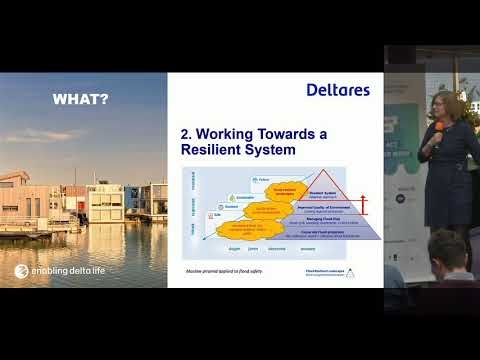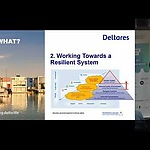A complex dilemma arises here: a degree of uncertainty about complex system changes, and at the same time the task of working out the intended transitions within the existing, limited context of laws and regulations, current policy and social acceptance. In short, the task of keeping the Dutch delta liveable and safe demands a systematic future study of adjustments to and in the spatial organisation of the water (safety) system.
In the coming decades regional water authorities together with regional governments and local partners will reinforce flood defences in many places in the Netherlands. How can we together ensure that we make the right decisions and do not regret these investments in 10-20 years’ time? This is a relevant question, especially given the complex societal challenges (climate adaptation, housing, nature development, energy and agricultural transition). Current society, in terms of norms and values, will also change. This calls for insight into future society: which values will we find important and can we accommodate them?
That is why, together with the sector, we are developing the concept of flood resilient landscapes. The underlying principle is to create social added value while promoting or at least maintaining flood risk management and climate change, given (future) spatial and societal developments. The necessary knowledge development takes place through real-world practical cases. We use both forecasting (using adaptive delta management) and back casting methods (e.g. Reframing Process) to develop perspectives on action; on the one hand based on uncertainties around e.g. climate changes, and on the other hand based on certainties and trend for the future society, including the issues that are important for the design by that time.
The flood resilient landscapes concept offers the prospect of keeping the Netherlands safe beyond 2100 at socially acceptable costs and with public support now and in the future, and paves the way towards implementation throughout the international deltas.
In-person Conference
Source: YouTube - Flood resilient landscapes area specific solutions

